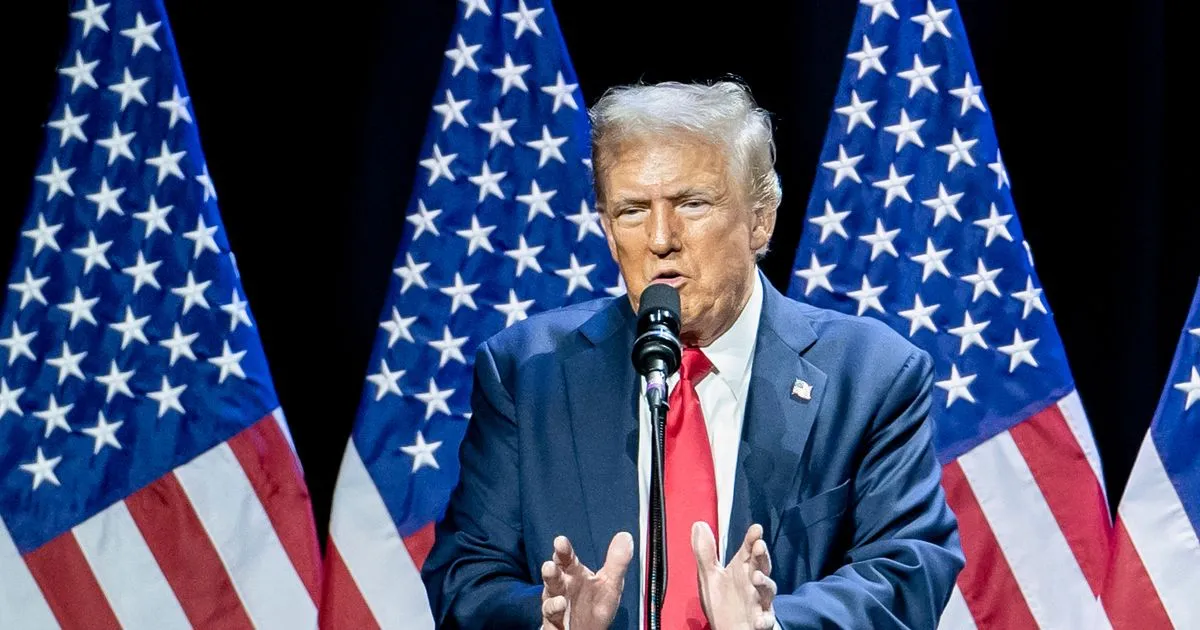
President Donald Trump has taken office for his second term with promises to bolster the U.S. auto industry. However, Jim Farley, CEO of the iconic Detroit carmaker Ford, has raised concerns about potential negative impacts of Trump's policies on the industry. Just weeks into this term, Farley has highlighted potential risks, including significant layoffs and broader economic challenges.
During a recent appearance in New York City, Ford CEO Jim Farley emphasized two critical threats facing U.S. auto manufacturers and their suppliers: Trump's intention to withdraw support for electric vehicles (EVs) and his enthusiasm for imposing broad tariffs, particularly targeting Canada and Mexico. "Jobs will be at risk" if Trump ends the EV support, Farley warned, as reported by the Detroit News.
Farley elaborated on the dangers of tariffs, stating they could "blow a hole in the U.S. industry that we've never seen." His comments reflect the concerns of labor unions and industry analysts who fear that Trump's proposed changes could harm the auto sector.
Recent federal incentives for EVs have sparked a boom in factory construction across the U.S., from the upper Midwest to the burgeoning "battery belt" in the South. These incentives have also driven rising EV sales, enabling traditional U.S. automakers like Ford and General Motors to regain some market share lost to Chinese competitors, who have long benefited from government support for their EV industry.
These subsidies have been primarily delivered through the Inflation Reduction Act, a comprehensive 2022 climate legislation signed by President Joe Biden. However, President Trump has expressed disdain for such policies, having previously labeled climate change a "hoax" and criticized federal EV initiatives.
Trump's administration has signaled a willingness to repeal the 2022 law and its EV subsidies. Farley has described such a move as a "big mistake," noting the significant investments already made in battery production and assembly plants in states like Ohio, Michigan, Kentucky, and Tennessee. "Many of those jobs will be at risk if the IRA is repealed," Farley cautioned.
On the day Farley spoke, Trump also imposed 25% tariffs on aluminum and steel, just a week after briefly imposing similar tariffs on all goods from Canada and Mexico. Farley noted that these tariffs would likely result in higher prices for Ford vehicles, even though most of the company's steel is sourced domestically.
Farley expressed appreciation for Trump's efforts to strengthen the U.S. auto industry but voiced concerns about the chaotic and costly nature of the proposed tariffs. The potential reintroduction of significant tariffs against Canada and Mexico poses a particular threat to U.S. automakers, who rely heavily on cross-border supply chains.
Farley warned that such tariffs could inadvertently benefit foreign competitors. "A 25% tariff across the Mexico and Canada borders would blow a hole in the U.S. industry that we've never seen," he said, predicting a windfall for South Korean, Japanese, and European companies.
Jim Farley plans to meet with members of Congress, though it's unclear if discussions with the White House or Trump adviser Elon Musk are on the agenda. Interestingly, Musk has suggested that rolling back government EV support might not hurt Tesla, and could even give it an advantage over traditional automakers.